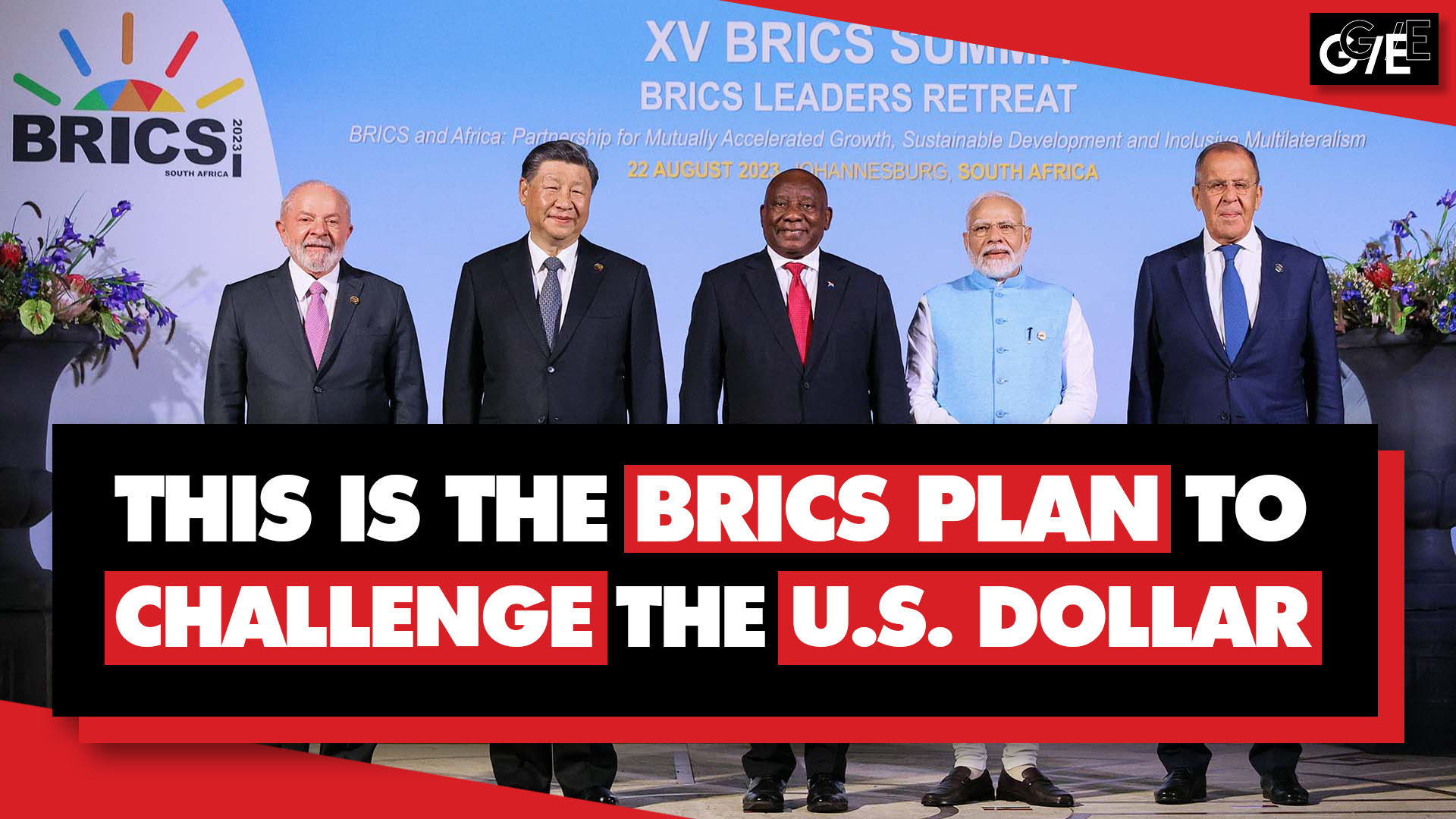The BRICS Cross-Border Payment Initiative (BCBPI) will use national currencies, instead of the US dollar. Russia’s finance ministry and central bank released a report detailing plans to transform the international monetary and financial system.
As the chair of BRICS for 2024, Russia proposed the creation of a BRICS Cross-Border Payment Initiative (BCBPI), in which members of the organization will use their national currencies to trade.
BRICS will likewise establish an alternative messaging infrastructure to circumvent the SWIFT system of interbank communication, which is overseen by the United States and subject to Western unilateral sanctions.
There are also plans for the establishment of a BRICS Grain Exchange and associated pricing agency, with centers for trade in commodities like grain, oil, natural gas, and gold, which can likewise be used to settle trade imbalances.
These proposals were outlined in the report “Improvement of the International Monetary and Financial System”, which was co-authored by the Ministry of Finance of the Russian Federation, the Bank of Russia, and the consulting firm Yakov and Partners.
In February 2024, the finance ministers and central bank governors of BRICS met in Sao Paulo, Brazil. There, the Russian representatives said they would prepare a report “for BRICS countries’ leaders with a list of initiatives and recommendations on ways to improve the international monetary and financial system”.
Russia’s Finance Minister Anton Siluanov explained the motivation:
“The current system is based on existing Western financial infrastructure and the use of reserve currencies. It is severely flawed and is increasingly used as a tool of political and economic pressure. Another reason for a reform of the international monetary and financial system is the geo-economic fragmentation that became a result of the abuse of trade and financial restrictions.”
The Russian BRICS chairmanship report argued that the international monetary and financial system (IMFS) is not only unjust but also inefficient, as it is a monopoly that suffers “from excessive reliance on a single currency and centralized financial infrastructure”.
The document noted that the “current IMFS is primarily serving interests of AEs” (advanced economies) – that is, largely the wealthy countries of the West.
As of 2023, the original five BRICS countries make up 32% of global GDP (measured at purchasing power parity, PPP), but have only 13.54% of voting shares in the IMF.
On the other hand, the G7 nations hold 41.27% of the voting shares in the IMF, despite the fact that they comprise just 30% of global GDP (PPP).



It looks to be pushed by a few big countries who love to tamper with their monetary system which will be a big No No if they are part of the new system. This feels like a foot gun.
Can you elaborate? What tampering do you mean, what benefits does it provide, and why would the be lost because of this move?
China has intentionally printed and destroyed currency to maneuver themselves against other countries. It’s one thing where you modify rates to influence inflation and spending but extreme manhandling your financial system means you are not a stable system to base the world economy on. While any country could screw everyone over, its the fact they have already manipulated things that makes them scary.
lmfao hard to think of a better example of a country tampering with its monetary system than the US printing trillions of dollars every few years 🤡
there is a difference from trying to stabilize an economy by controlling inflation and rates. We’ve seen China modifiy their currency maliciously. If China or Russia dont see favorable trade in their direction both would easily tank their economy to destroy other countries.
Oh do explain in what way China modifies their currency that’s malicious. Also, hilarious amounts of projection happening there. Only fucked in the head westerners see everything as a zero sum game where they’d rather destroy the world than live with the fact that somebody out there is doing better than them.
In 2019 China repeatedly modified their currency and rates causing world banks to believe they were doing it intentionally to gain trade advantage over orher countries.
In 2015 and 2005 they also devaluated their currency causing surges in trade and nearly caused a currency war.
Not sure what’s malicious about China protecting their economy like everyone else.